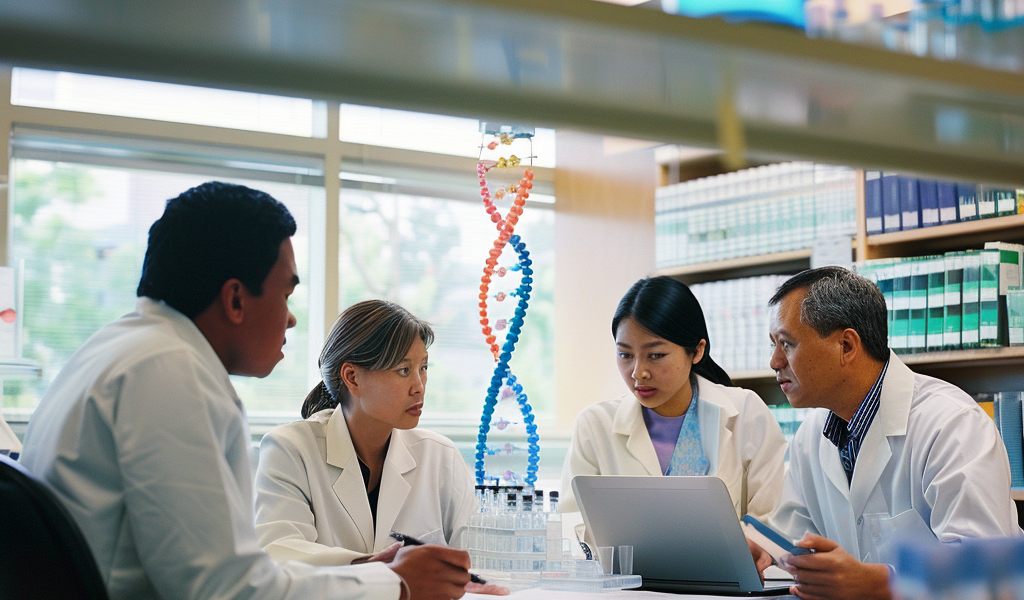In a significant advancement in cancer research, scientists have made strides towards understanding and potentially mitigating the risks associated with BRCA gene mutations, which are known to increase the likelihood of developing breast and ovarian cancers. Approximately 50% of women who carry mutations in the BRCA1 or BRCA2 genes are at a heightened risk of facing these lethal forms of cancer. The latest research focuses on isolating these mutations and exploring methods to rectify them.
BRCA1 and BRCA2 genes play a critical role in DNA repair. When these genes function properly, they help maintain the integrity of cellular DNA. However, mutations can disrupt this process, leading to an increased risk of cancer. Researchers are now delving into the mechanics of these mutations and their implications for cancer development.
Dr. Weixing Zhao, an assistant professor of Biochemistry at the UT Health Science Center, explains the innovative approach taken by researchers. “We essentially created a specific mutant that affects the ubiquitin activity of BRCA1, which allows us to study the consequences of diminished BRCA1 function,” Dr. Zhao stated. This research is pivotal in understanding not only why these genes mutate but also how to counteract the effects of such mutations.
The urgency of this research stems from the fact that many women with BRCA mutations have opted for preemptive radical mastectomies as a preventive measure against cancer. This drastic decision is often made due to the gene’s notorious association with aggressive cancer types. However, the new study aims to pave the way for the development of targeted cancer therapies that could reduce the necessity for such invasive surgeries.
Despite the extensive research on BRCA1, which has led to over 14,000 published studies, this recent breakthrough involves the recreation of BRCA mutations through advanced DNA sequencing techniques. This innovative approach holds promise in halting cancer progression before it becomes life-threatening.
The implications of this research extend beyond just the scientific community; they resonate deeply with women who face the daunting prospect of cancer due to hereditary factors. By understanding the underlying mechanisms of BRCA mutations, researchers hope to develop more effective treatments that not only target the mutations but also provide a safer alternative to radical surgeries.
As this research continues to evolve, it brings hope to countless women and families affected by the fear of hereditary cancer. The potential for targeted therapies signifies a shift in the landscape of cancer prevention and treatment, offering a more personalized approach to healthcare.
For women carrying BRCA mutations, the journey towards understanding their genetic makeup and making informed decisions about their health is becoming clearer. With ongoing studies and advancements in genetic research, the future may hold new possibilities for managing and preventing cancer.
This research highlights the importance of genetic studies in the fight against cancer, emphasizing the need for continued investment in understanding complex genetic disorders. As scientists work tirelessly to unravel the mysteries of BRCA mutations, the hope for effective treatments and preventive measures becomes increasingly attainable.
As the scientific community progresses in this field, the conversation around genetic testing and its implications for women’s health is likely to grow. Awareness and education surrounding BRCA mutations are crucial in empowering women to make informed choices about their health and well-being.
In summary, the latest advancements in BRCA research represent a beacon of hope for women at risk of hereditary breast and ovarian cancers. Through innovative scientific approaches, the potential to reduce the necessity for radical surgeries while developing targeted therapies is on the horizon, marking a transformative moment in cancer treatment and prevention.





